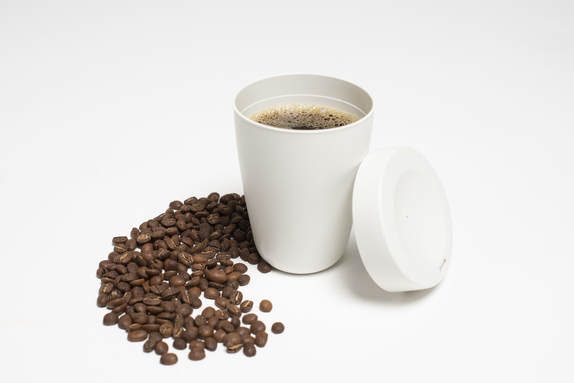|
Rubbish is one topic that keeps me up at night. Everything we throw away has energy locked up in it. That could be anything from the energy used to extract and manufacture the materials, to the energy used to transport the products. Throwing stuff away creates another energy intensive exercise; transporting the rubbish for disposal and the need to manufacture replacements to meet our single use culture.
People seem to be more aware of this, with many campaigns highlighting the huge amounts of plastic waste that end up in our oceans. Zooming in on one specific issue: coffee cups. In the UK, we throw away 2.5 billion a year. These are usually paper on the outside, plastic on the inside, making them extremely difficult to recycle. Growing up in the Middle East, I remember getting coca cola in glass bottles, and returning those bottles to the shop. One company is trying to solve the coffee cup issue in a similar way; CupClub want to stop manufacturing for single use. Rather than focusing on recycling, their focus is on reusing. CupClub offer businesses and retailers a returnable cup and lid service to eliminate waste from their supply chain. This model was adopted after carrying out full life cycle analysis with Giraffe Innovation. Safia Qureshi, Founder and CEO of CupClub, told me that their system uses half the amount of carbon dioxide when compared with disposable cups. To achieve similar results, we would have to increase recycling rates to 84% in the UK. At the moment we're at 1%. Consumers sign up for free to use the cups, giving them access to a map of the drop off points for the cups, similar to borrowing a Santander bike in London. The cups are collected from the drop off points to be washed and redistributed to retailers. CupClub maintain responsibility for their products by tagging each cup. Using technology similar to the Oyster card, they can track where the products are at any time and make sure they are properly managed from start to finish. Also, the data collected will show patterns of use and demand across different areas. This ties in with the company's bigger aim of understanding and improving how we feed a population. Patterns of use can feed back data about how much needs to be manufactured, and how much needs to be grown, to meet demand. Coffee cups are just the start. Returnable food packaging, like the plastic boxes seen at Pret A Manger, Itsu and Marks & Spencer could be next on the hit list. CupClub will be looking to provide frequently used packaging products to make an impact.
1 Comment
|
Yasmin AliEngineer, writer, presenter Archives
March 2023
Categories |

 RSS Feed
RSS Feed